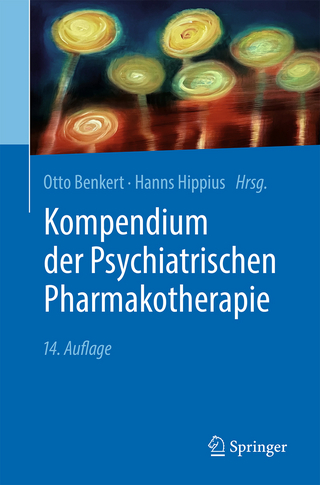
Robust Theoretical Models in Medicinal Chemistry
Elsevier - Health Sciences Division (Verlag)
978-0-443-27420-6 (ISBN)
- Noch nicht erschienen (ca. Juni 2025)
- Versandkostenfrei innerhalb Deutschlands
- Auch auf Rechnung
- Verfügbarkeit in der Filiale vor Ort prüfen
- Artikel merken
Luciana Scotti is currently working as Senior Researcher at the Federal University of Paraíba, Brazil, where she completed her Ph.D. in Pharmacy. Her main area of interest focuses on Molecular and Computer Sciences. Her area of expertise includes Bioinformatics, Neglected Disease, Molecular Modelling, QSAR, and Natural Products. She has published 35 research articles in journals as well as 1 book and 2 book chapters contributed as author/co-author. Marcus Tullius Scotti studied chemical engineering at Universidade de São Paulo (USP - São Paulo University) and finished his degree in 1999. After, he worked for four years in a Brazilian electronics and telecommunications services company called Gradiente. At the same time, he started to study specialization on Industrial Administration at the University of São Paulo. After that, he started post-graduation in organic chemistry at the University of São Paulo in 2003 and finished his Master in 2005 and Ph.D. in 2008. In January of 2009, he moved to João Pessoa and started to work as Professor of Organic Chemistry at Universidade Federal da Paraíba (Federal University of Paraíba), Brazil. At beginning of 2014 he finished a post-doc in cheminformatics at Universidade Nova de Lisboa, Portugal. His research interests are in the chemistry of the natural products, acting on the following subjects: QSAR, Virtual Screening, molecular descriptors and chemotaxonomy using cheminformatics methods using statistical tools and machine learning algorithms. He has published mor than 240 papers, 19 book chapters and 155 abstracts in conferences.
1. Building QSAR models
2. Model, validation and prediction
3. Outliers and Negative Data
4. QSAR3- and 4D
5. QSAR and QSRP modelling
6. QSAR In Food Science
7. Interpretation of recent computational methods
8. Recent theoretical methods in the industry
9. Understanding the difference between machine learning and deep learning
10. Can artificial intelligence replace QSAR?
| Erscheint lt. Verlag | 1.6.2025 |
|---|---|
| Verlagsort | Philadelphia |
| Sprache | englisch |
| Maße | 152 x 229 mm |
| Themenwelt | Medizin / Pharmazie ► Medizinische Fachgebiete ► Pharmakologie / Pharmakotherapie |
| Naturwissenschaften ► Chemie ► Organische Chemie | |
| ISBN-10 | 0-443-27420-7 / 0443274207 |
| ISBN-13 | 978-0-443-27420-6 / 9780443274206 |
| Zustand | Neuware |
| Haben Sie eine Frage zum Produkt? |
aus dem Bereich


